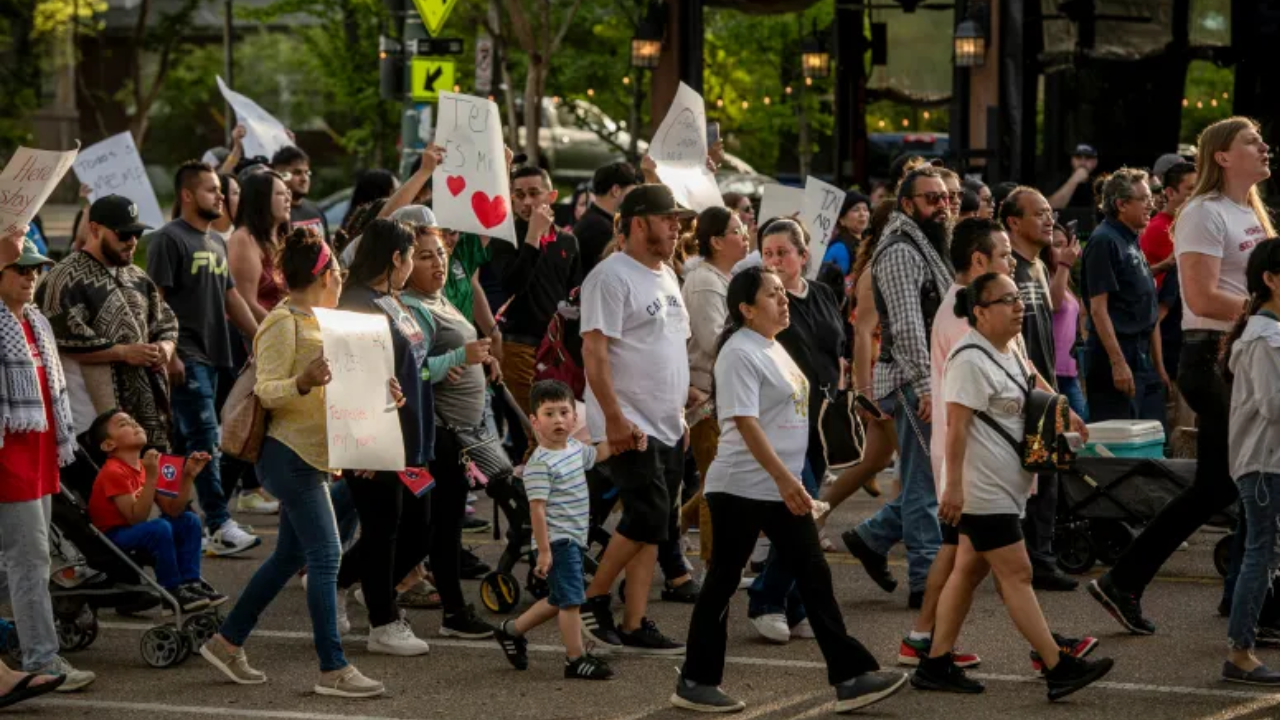These days I spend a lot of time thinking about President Donald Trump’s pledge to deport between 11 million and 20 million people.
Because the mission of Church Health is to care for the working uninsured, we see a lot of immigrants. Many of the people who come through our doors are at risk, or fear they are at risk, of being removed from the city they love and the people who love them.
It causes anxiety in me, and I am not one prone to being anxious.
The depth of fear extends broad and wide. I see people every day who are afraid they will be deported, and some of them were born at Methodist Le Bonheur Germantown Hospital.
They are American citizens, but members of their families are not. The fact that individually they have nothing to fear doesn’t diminish the emotional impact of the deportation threats.
I know no one, no matter his or her immigration status, who opposes deportation of “criminals.” There is universal desire for thieves, drug dealers and violent offenders to be quickly expelled from the United States. On this there is no discussion.
But let me give you just a few examples of people I have personally met who are at risk of deportation.
Wanda is 50 years old and has lived most of her life in Jamaica. Her mother moved to Memphis 30 years ago after she divorced her husband. Through the normal channels, her mother became an American citizen. She is now in her late 70s, and her health is failing. Wanda came to Memphis eight months ago to take care of her. If Wanda is deported, who will care for her mother?

Roberto is from Honduras. He came to Memphis 20 years ago because of all of the violence in his hometown. He started on his own doing odd jobs. He spoke very little English, but he slowly learned. He became very good at his trade. He began as a painter but watched and learned about every construction skill there is. He is as kind a person as I have ever known. Since being here, he has had two children, both American citizens by birth.
Once at my home, we were doing a project that required having a general contractor. We asked him to use Roberto whenever possible. At one point, Roberto said something with no malice intended. At the end of a long day of hard work he said, “One day, I hope I can work like a white man.”
What he meant was he could start later and take frequent breaks and not work as hard as he does. He overstated his point, but there is some truth in what he said. If he is deported, there are lots of people in Memphis who will greatly miss the work he does.
James is from Canada. He has a doctorate in history. He tutors a number of high school students who go to private schools across Memphis. Very few people know he is undocumented. But he is terrified of being deported.
I could go on. In Memphis, thousands of people are at risk. They build our houses, wash our dishes in restaurants, mow our yards, clean our houses and take care of our children. Think about the people in your life, or even working alongside you, who are right now wondering what their futures might be.
When I first started Church Health in 1987, I cared for many people who grew up in rural Mississippi picking cotton. Thankfully they were able to stop having to do that backbreaking work.
But who picks our vegetables and our fruit these days? You know the answer. In some places they have already stopped showing up for work in significant numbers out of fear of the deportation raids.
A central theme for the Christian and Jewish faiths is the idea of hospitality. In Leviticus 19:-33–34 we are told, “When a stranger resides with you in your land, you shall not do him wrong. The stranger who resides with you shall be to you as the native among you, and you shall love him as yourself.”
In the Gospel of Matthew, Jesus amplifies the importance of hospitality when he says, “For I was hungry, and you gave me something to eat; I was thirsty, and you gave me something to drink; I was a stranger, and you invited me in” (Matthew 25:35).
Jesus equates caring for the stranger with directly caring for him.
Read the full story on Daily Memphian.
The Rev. Dr. G. Scott Morris, M.D., is founder of Church Health. He is a regular contributor to The Daily Memphian.
The Daily Memphian is the must-read, primary daily online publication for intelligent, in-depth journalism in the Memphis community. The Daily Memphian reports on critical news, holds political, business and community leaders accountable, and engages with and entertains its readers – all while seeking truth, acting with integrity, and never fearing stories simply because of their negative or positive attributes. Led by a seasoned team of veteran journalists, The Daily Memphian is of Memphis, not just in Memphis, and seeks to tell the stories of this city.